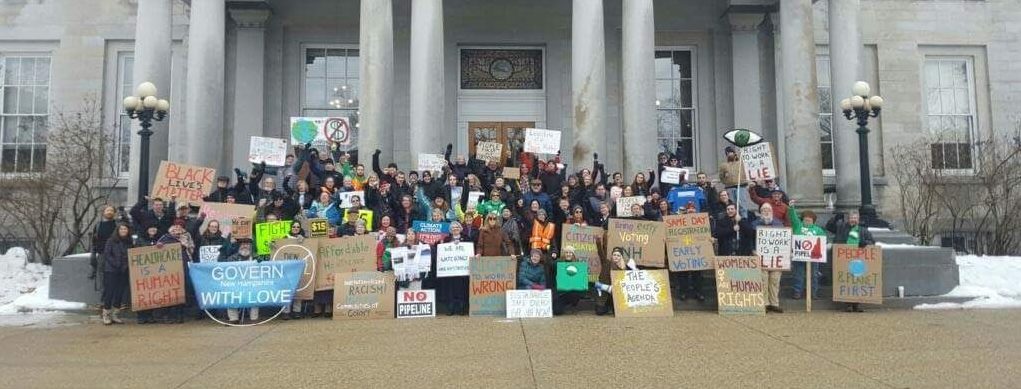Massachusetts
People in coastal Massachusetts are concerned about the privatization of scenic and natural walkways. These paths have been used by the public for centuries. Now, a new generation of property owners are denying access to portions of these iconic walkways and suggesting dangerous rerouting through uneven, eroded, and often flooded areas. The common benefit and public good be damned.
The politics of false solutions is also heightening in the state. Residents are blowing the whistle on large-scale industrial solar arrays that require the cutting of old-growth forests in favor of destructive greenwashing.
And as the ecological crisis reaches a fever pitch, more people are waking up to the need for decisive action and thinking outside the box. For example, residents are expressing interest in pursuing rights for the Merrimack River that runs from New Hampshire into Massachusetts, before meeting the Atlantic. The Merrimack is one the most polluted rivers in the region; it continues to be used as a dumping ground for chemical runoff, sludge applications along its shores, landfills, and municipal wastewater.
Maine
In Maine, a community that adopted a rights-based local ordinance in 2010 that stripped corporations of their personhood rights, protections, and privileges, is now facing mineral extraction for gravel. Residents have reached out to CELDF for assistance in mounting an educational campaign. The campaign will raise awareness about how townspeople can protect their human and natural community from corporate actors that seek to use them as a resource colony for profit by recognizing the Rights of Nature and banning mineral extraction as a harmful activity.
New Hampshire
As global carbon dioxide concentrations hit their highest level in 4 million years, New Hampshire Judge Martin Honigberg has rewarded a local corporate actor in Nottingham for opposing a democratically adopted ordinance that recognized a right of townspeople to a “climate system capable of sustaining human societies.” The Freedom from Chemical Trespass Ordinance was passed by voters in 2019 and also secured rights of ecosystems “to naturally exist, flourish, regenerate, evolve, and be restored” and banned corporate activities that infringe those rights.
The June 4, 2021 ruling could force the Town of Nottingham to pay tens of thousands of dollars in attorney fees to a resident plaintiff and his corporate shield, G&F Goods, LLC, which filed a lawsuit against the unenforced Ordinance, arguing it unconstitutionally discriminates against polluting corporations. (The courts agreed with this argument.)
This ruling is like blaming the victim. Just the mere possibility of a lawsuit against a corporation merits the nullification of the town vote in order to protect capitalism. No such proactive protections from guaranteed exploitation or poisoning are provided to the townspeople or natural environments. Clearly, we cannot look to the courts for climate or social justice.
A detailed New Hampshire Community Rights Network (NHCRN) booklet is being published to support an outreach campaign to municipal officials across the state as the NHCRN prepares to reintroduce a state constitutional amendment, the NH Community Rights Amendment. The amendment seeks to recognize, secure, and protect the right of local self-government and empower local communities to collectively recognize the rights of residents and ecosystems to not be harmed by corporate polluters.

